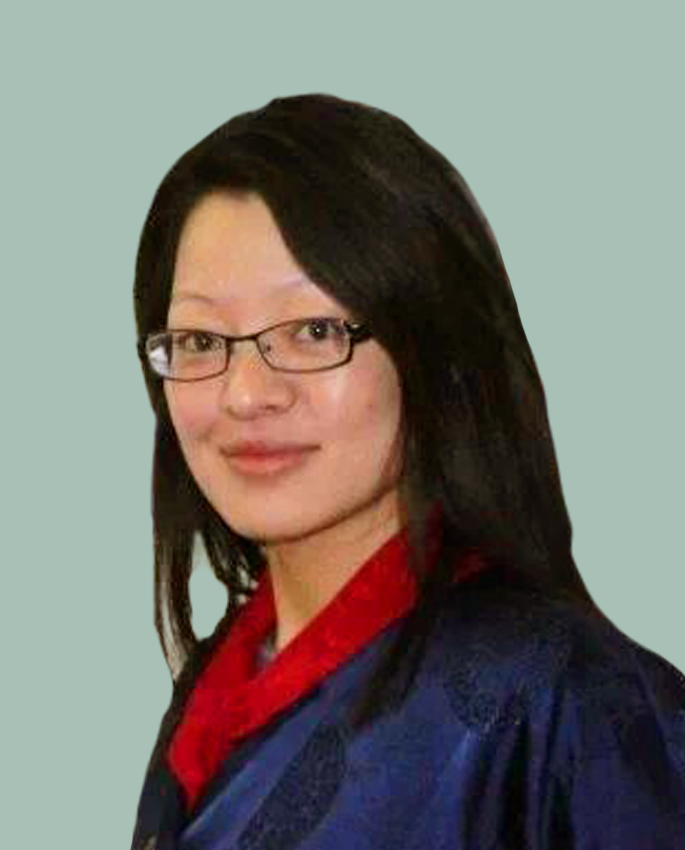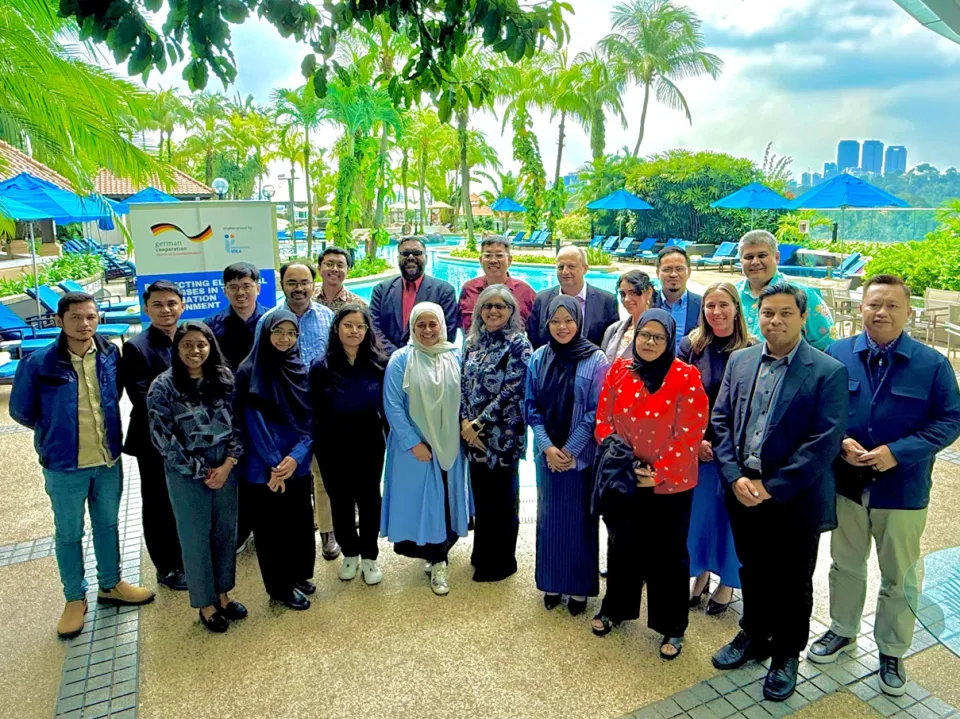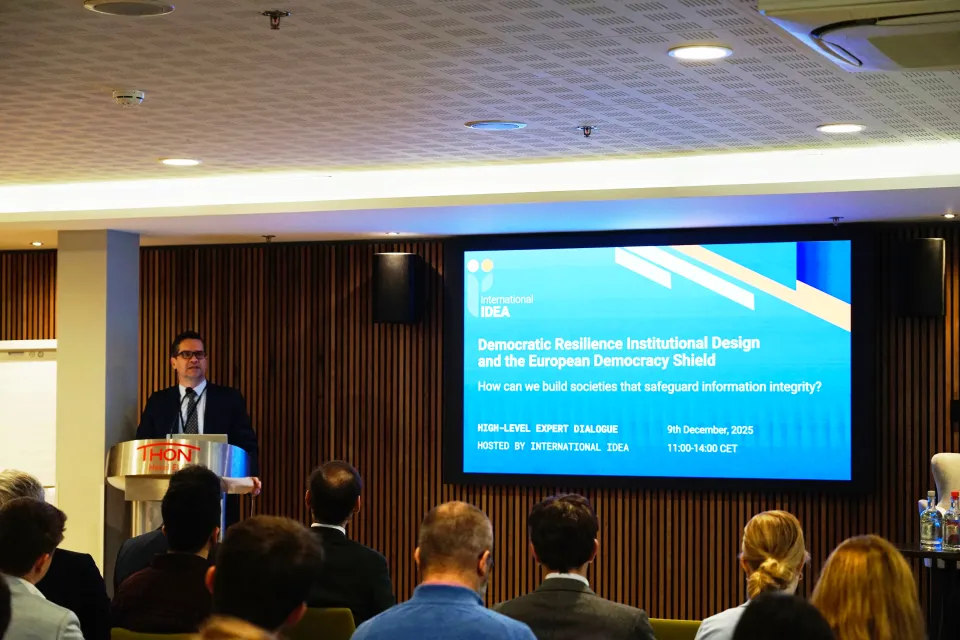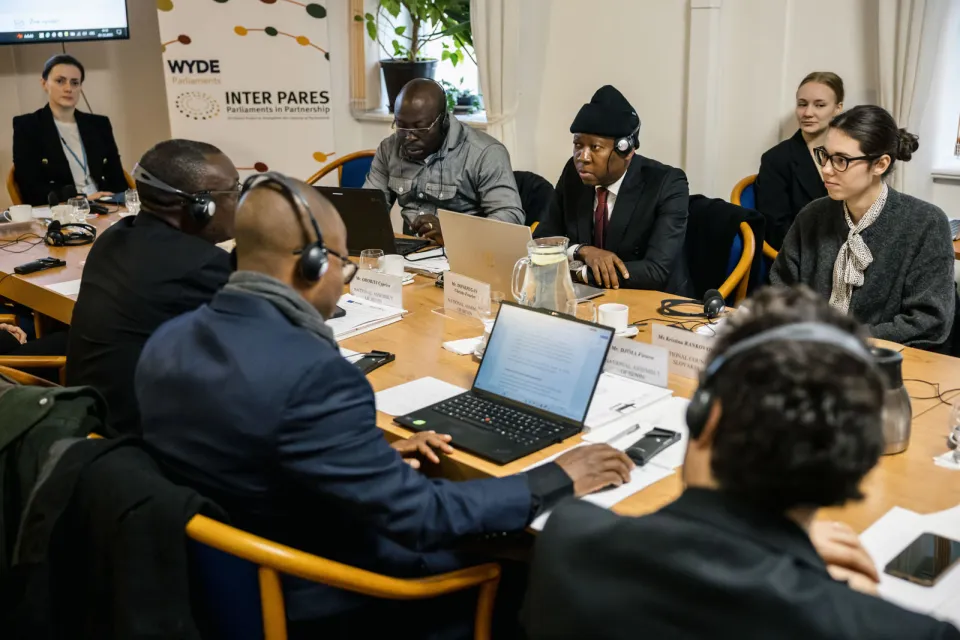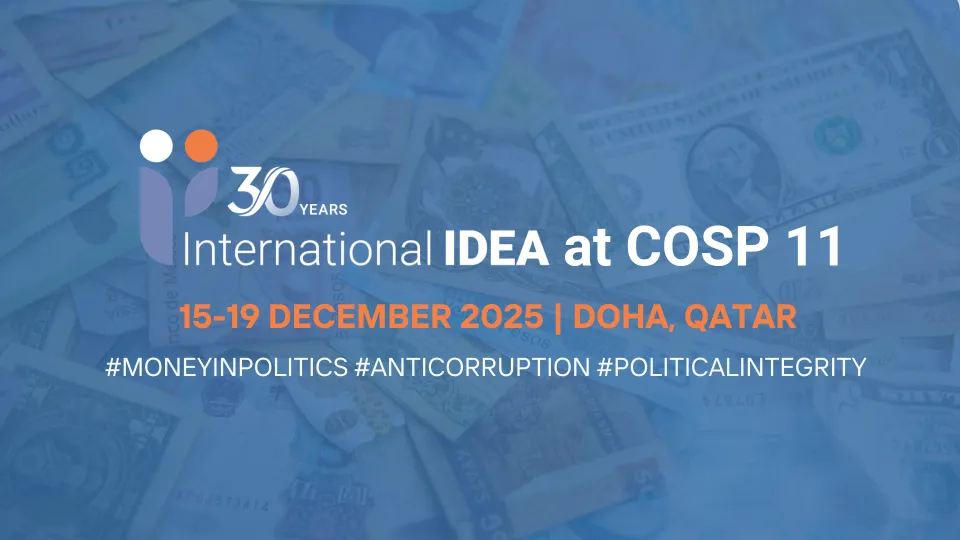Towards Effective Communication for the Parliament of Bhutan
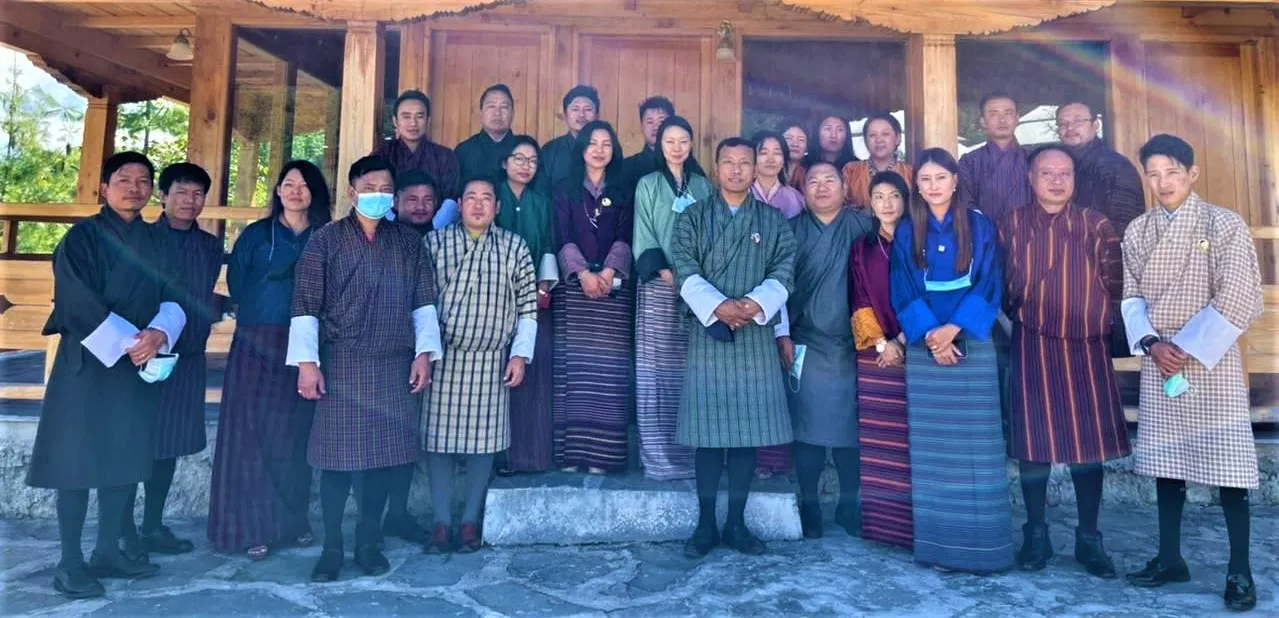
A five-day workshop was held in October 2021 for 22 secretariat staff of the National Assembly (NA) and National Council (NC), the two parliamentary houses of Bhutan. The workshop aimed at identifying the Parliament of Bhutan’s communication needs and explore opportunities of leveraging new possibilities provided by the mainstream and social media platforms for effective parliamentary communications. In addition, aim was for the parliament to become more adept in the intricacies of configuring and messaging for different purposes and audiences.
The Speaker of the National Assembly, Hon. Wangchuk Namgyel, acknowledged that the Parliament of Bhutan suffers from a lack of visibility and the people of Bhutan need to understand the critical functions of both Houses. He also expressed the critical need to engage the public more effectively besides communicating its roles, challenges and accomplishments.
The participants agreed that the parliament and media are fundamental to good governance. Media and communication functions of Bhutan’s Parliament play a critical role in enhancing citizen’s understanding of the work of the country’s legislatures. The Parliament of Bhutan is aware that, by their very nature, the parliamentary activities are public activities, and as such, subject to intense scrutiny and assessment by members of the public. Therefore, the Parliament of Bhutan felt that it was extremely important to inform the public in a timely and appropriate manner.
The workshop was led by Pek Dorji, an experienced media practitioner. The workshop was highly intense and engaging. The participants acknowledged that they took away new knowledge, skills and techniques which can be applied to their everyday communication requirements. One of the participants mentioned that “…having a defined target audience in your mind when coming up a report or brief makes a huge difference. The impact is much higher when you know the audiences you want to reach out to.”
The workshop noted that the knowledge of Bhutanese citizens about legislative processes varies greatly and gaps in understanding persist in a country where democracy was first introduced in 2008.
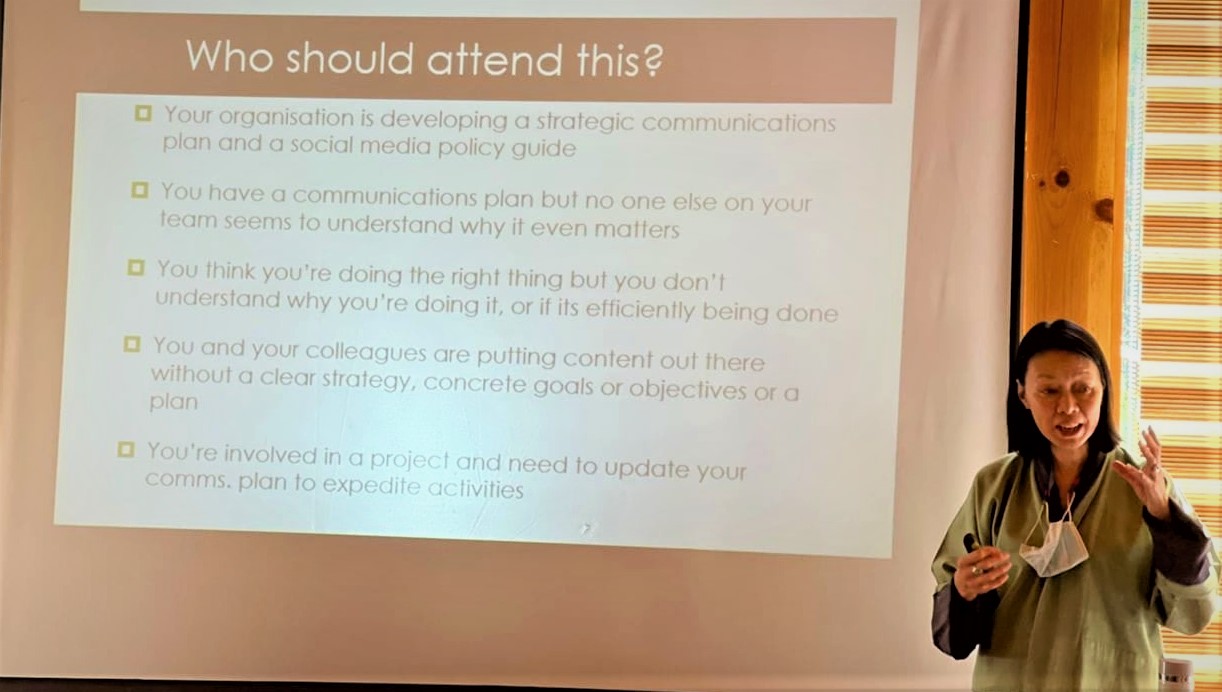
A major challenge confronting Bhutan’s Parliament is how to make the information provided by the NA and the NC easy to use and understandable to those outside the institution. Citizens have limited understanding of how to interact with MPs and share their views, which has also impacted transparency of the Parliament’s work.
The workshop enhanced participants capacity to leverage the emerging media landscape through use of ICT tools and platforms that can provide easy access to a more comprehensive picture of the work of Parliament. In this regard, meaningful and positive content creation was emphasized as a way to enhance the positive public perception of the parliamentary functions and process.
The strategies identified include telling positive stories about the Parliament to increase engagement of the public to build trust and awareness of the Parliament and democracy more broadly.
The workshop covered a range of issues and identified public perception gaps and a clear need for more strategic public outreach by Bhutan’s Parliament emerged. Parliament’s communications efforts could go beyond merely informing people about events. Communications could help people understand the workings of Parliament and enable citizens to interact with their MPs and the work of parliamentary committees more effectively and meaningfully.
Several recommendations were adopted from the workshop’s experience and interactions. Some of them include:
- The need for communication strategy to be in place to sharpen the focus of parliamentary communication and preparing annual communication plans.
- To revamp and update current websites to make them more interactive besides encouraging people to share feedback and views on the parliamentary processes.
- The continued capacity building and support for the secretariat staffs was among the nine listed recommendations.
Speaking at the workshop, the International IDEA Bhutan Programme Manager, Pema Tenzin, reaffirmed International IDEA and the EU’s continued support and cooperation with the Parliament of Bhutan and its various partners. He stressed that effective communication was fundamental to promoting transparency and enabling the Parliament to be accountable to the people. The Parliament’s communications and the messages it puts out can build a dialogue between the citizens and their parliamentary representatives.
The capacity-building workshop was funded by the European Union and implemented by International IDEA in partnership with the Parliament of Bhutan as part of a three-year project titled “Project ‘Nyamdrel | Support to the Parliament and CSOs”.
